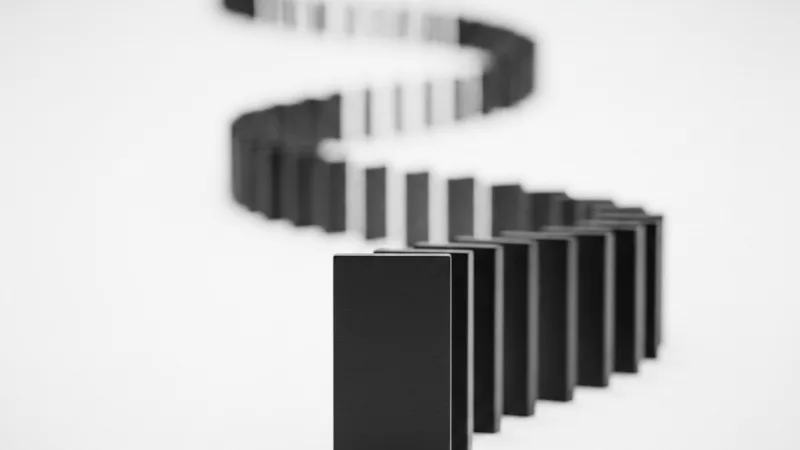Day 6/100 Chronic Illness

Day 6/100 Chronic Illness
Stormin’
- https://www.youtube.com/watch?v=QMDsUdhymbQ
- https://www.lewrockwell.com/2025/10/ginny-garner/unraveling-the-mystery-of-who-assassinated-charlie-kirk-and-why/
- https://articles.mercola.com/sites/articles/archive/2025/10/25/lithium-alzheimers-prevention.aspx?ui=ae72a452b52d93e11a385b42fc0647f683d4f227749220fb45486fc8ece54d5b&sd=20240906&cid_source=dnl&cid_medium=email&cid_content=art1ReadMore&cid=20251025&foDate=false&mid=DM1829931&rid=418486053
- https://articles.mercola.com/sites/articles/archive/2025/10/25/magnesium-overactive-bladder.aspx?ui=ae72a452b52d93e11a385b42fc0647f683d4f227749220fb45486fc8ece54d5b&sd=20240906&cid_source=dnl&cid_medium=email&cid_content=art3ReadMore&cid=20251025&foDate=false&mid=DM1829931&rid=418486053
=====
Here are the main points from the article “The Role of Lithium Homeostasis in Alzheimer’s” by Joseph Mercola (October 25, 2025). (Mercola.com)
Story-at-a-glance
- Brain lithium levels drop in people with mild cognitive impairment (MCI) and Alzheimer’s disease, contributing to memory loss, brain inflammation and toxic protein build-up. (Mercola.com)
- Low-dose lithium (well below psychiatric treatment levels) has shown benefits in preserving memory, improving attention and stabilizing mood — with fewer risks to kidneys and thyroid compared to standard high-dose lithium. (Mercola.com)
- A clinical trial found that lithium slowed the progression from early memory problems (MCI) to Alzheimer’s, reduced key biomarkers of disease and improved daily functioning. (Mercola.com)
- To support healthy lithium balance you can focus on: whole foods, mineral-rich water, magnesium & zinc, and reducing vegetable oils & excess iron. (Mercola.com)
Key Findings
- Lithium deficiency in Alzheimer’s brains
- Brain tissue from people with MCI/Alzheimer’s showed consistently reduced lithium levels in critical brain regions (e.g., prefrontal cortex). (Mercola.com)
- Amyloid plaques seem to sequester lithium — meaning lithium becomes trapped in those deposits and unavailable for healthy brain cell function. (National Institutes of Health (NIH))
- In animal models, diet-induced lithium loss accelerated plaque formation, tau tangles, inflammation, myelin thinning and memory impairment. (Harvard Medical School)
- Low-dose lithium’s protective effects
- In reviewed studies (clinical trials & observational), low doses of lithium improved cognitive test scores and mood, even in people with early memory issues. (Mercola.com)
- The protective effects occurred without the typical risks seen from high-dose psychiatric lithium (e.g., thyroid, kidney problems). (Mercola.com)
- In mice, a specific lithium compound (lithium orotate) that avoids sequestration by plaques was more effective at reversing pathology than standard lithium carbonate. (National Institutes of Health (NIH))
- Implications for Alzheimer’s progression & prevention
- A trial in adults with amnestic MCI showed those on low-dose lithium had better memory/attention outcomes, lower Alzheimer’s biomarkers and fewer progressions toward full Alzheimer’s (though the difference did not reach full statistical significance due to small sample size). (Mercola.com)
- The research suggests lithium may be more than a symptomatic treatment—it may modify disease biology. (Harvard Medical School)
- The article argues that prevention of cognitive decline might start with maintaining trace-element (lithium) balance, alongside diet & lifestyle measures. (Mercola.com)
- Recommendations for supporting lithium balance & brain health
- Eat whole, minimally processed foods; use water if it’s naturally mineral-rich. Ultraprocessed foods often lack trace minerals like lithium. (Mercola.com)
- Ensure sufficient magnesium & zinc (which support brain resilience and work with lithium). Focus on well-absorbed sources (e.g., animal-based zinc, certain magnesium forms). (Mercola.com)
- Limit vegetable oils high in linoleic acid (LA), reduce excess iron (which can catalyze oxidative damage), and support antioxidants like glutathione via sulfur-rich foods. (Mercola.com)
- For those at higher risk (family history, early cognitive decline) the article suggests considering low-dose lithium orotate (though it emphasizes caution and that more human data is needed). (Mercola.com)
- Cautions / Limitations
- Much of the compelling data comes from mouse models and post-mortem human brain tissue. Translating to routine human use still needs large, long-term clinical trials. (National Institutes of Health (NIH))
- The standard high-dose lithium medications used in psychiatry are not directly analogous to the trace-dose model for Alzheimer’s prevention; and high-dose lithium has known risks in older adults. (STAT)
- The article notes that although results are promising, it’s premature to self-supplement high or non-monitored doses of lithium specifically for Alzheimer’s prevention. (The Harvard piece says people should not take lithium compounds on their own yet.) (Harvard Medical School)
Why this is relevant for you
Given your interest (as a 71-year-old male diabetic who had a stroke and is focused on brain health, balance, preventing decline, etc), the article touches on early prevention of cognitive decline, which may align with your broader goals of maintaining independence, strength, and memory as you age.
It also reinforces the value of trace nutrients and lifestyle shift rather than just pharmaceutical fixes—something aligned with your minimalism / asceticism / living optimally with less lens.
🧠 Lithium & Alzheimer’s Prevention — Cheat Sheet for Seniors (2025)
🧾 Quick Summary
- What’s new: Low-dose lithium (trace mineral amounts) may help protect memory, reduce brain inflammation, and slow Alzheimer’s progression.
- Why it matters: Brain lithium levels are consistently lower in people with mild cognitive impairment (MCI) and Alzheimer’s disease. Restoring balance may help keep your brain sharp.
🧪 What the Research Shows
| Finding | What It Means | Evidence |
|---|---|---|
| Lithium levels drop in Alzheimer’s brains | Plaques may trap lithium, reducing its protective effects. | 🧠 Strong (post-mortem studies) |
| Low-dose lithium improves memory & mood | Trace doses (far below psychiatric levels) support cognitive function in early stages. | 📊 Moderate (small clinical trials + animal data) |
| Lithium orotate may bypass plaque sequestration | A form that’s better absorbed in animal studies. | 🧪 Early-stage (animal studies) |
| Prevention focus works best early | Supporting brain lithium before symptoms may reduce risk. | 🧠 Moderate (observational + clinical) |
🥦 How to Support Healthy Lithium Balance Naturally
- Drink mineral-rich water 💧
– Many natural water sources contain small amounts of lithium.
– If your water is filtered or distilled, consider remineralizing it. - Eat whole, minimally processed foods 🥩🥦
– Industrial processing strips trace minerals like lithium.
– Good sources: meats, root vegetables, mineral-rich greens. - Balance magnesium and zinc ⚖️
– These work synergistically with lithium.
– Food sources: pumpkin seeds, oysters, dark chocolate, leafy greens. - Reduce vegetable oils & excess iron 🛑
– Linoleic acid (LA) in seed oils drives inflammation.
– Too much iron can damage brain cells. - Antioxidant support 🧄
– Sulfur-rich foods (garlic, onions, eggs) support glutathione, your brain’s antioxidant system.
💊 Supplementation (⚠️ Caution)
- Low-dose lithium orotate is being studied for early cognitive decline — but self-supplementation is not yet recommended without medical supervision.
- High-dose psychiatric lithium (lithium carbonate) is not the same and carries kidney/thyroid risks.
- If interested, talk with your doctor about trace-dose clinical trials or supervised use.
🧠 Additional Lifestyle Tips for Brain Protection
- 🚶♂️ Daily movement & balance exercises
- 🧘♀️ Stress reduction (meditation, prayer, gratitude)
- 📖 Lifelong learning & social engagement
- 🛏️ Good sleep hygiene
- 🩺 Regular checkups (blood sugar, thyroid, nutrient panels)
🚦 Bottom Line
- Lithium is emerging as a potential early-stage Alzheimer’s preventive — especially in trace doses.
- The science is promising but not yet conclusive.
- Your diet, water quality, and lifestyle already play a major role in supporting brain resilience.
- Medical guidance is essential if considering any supplement form.
🥩 Top Animal-Based Sources of Zinc
| Food | Zinc per 3 oz (85 g) serving | Notes |
|---|---|---|
| 🦪 Oysters | 25–75 mg | One of the richest natural sources. Just 2–3 oysters can meet your daily zinc needs. |
| 🥩 Beef (especially chuck roast, short ribs, or steak) | 5–9 mg | Grass-fed beef tends to have slightly higher mineral content. |
| 🐑 Lamb | 4–6 mg | A good alternative if you prefer less beef. |
| 🐖 Pork (loin or tenderloin) | 2–5 mg | Lean cuts have good zinc levels with lower fat. |
| 🐔 Dark meat chicken (thighs, drumsticks) | 2–3 mg | More zinc than chicken breast. |
| 🦃 Turkey (dark meat) | 2–3 mg | Also provides iron and B vitamins. |
| 🐟 Crab and lobster | 3–5 mg | Excellent source of zinc and omega-3s. |
| 🐚 Clams, mussels, and scallops | 1–3 mg | Good seafood option if you don’t like oysters. |
| 🥚 Eggs (especially yolks) | 0.5 mg | Modest zinc source; good for daily support. |
| 🧀 Cheese (especially cheddar and Swiss) | 1–2 mg | Not meat, but animal-based and easily absorbed. |
🧠 Tips for Seniors
- Pair zinc-rich foods with protein and healthy fats — it improves absorption.
- Avoid excess iron supplements unless prescribed, as iron competes with zinc for absorption.
- If you follow a low-carb or carnivore-style diet, meats and seafood can easily cover daily zinc needs.
- For reference:
- Recommended daily intake for men 71+ → 11 mg
- For women 71+ → 8 mg
✅ Best “power combos” for zinc:
- A few oysters + lean beef or lamb
- Dark meat chicken with eggs
- Crab or mussels with leafy greens (magnesium synergy)
Here’s a senior-friendly one-page Zinc Food Chart & Meal Guide — designed especially for low-carb / diabetic-friendly diets. 🧠✨
🦪 Zinc Power Foods for Seniors
Boosting brain, immunity & healing after 70
🧾 Why Zinc Matters
- Supports brain health 🧠, immune defense 🛡️, and wound healing
- Improves taste, smell, and appetite
- May help maintain blood sugar stability (especially when paired with protein)
- Older adults absorb zinc less efficiently → getting it through food matters
✅ Daily zinc goal:
- Men 71+ → 11 mg
- Women 71+ → 8 mg
🍽️ Simple Low-Carb Meal Ideas
| Meal | Zinc Foods | Extras |
|---|---|---|
| Breakfast | 2 eggs + cheddar + dark meat turkey | Add black coffee or green tea |
| Lunch | Grilled beef steak + spinach | Olive oil drizzle for absorption |
| Snack | 2 oysters or 1 oz cheese | Mineral water |
| Dinner | Baked lamb chop + steamed broccoli | Sprinkle with sea salt |
| Optional seafood swap | Crab cakes (no breadcrumbs) or mussels | Side of sautéed greens |
📝 Pro Tip: Pair zinc with magnesium-rich greens (spinach, kale) and avoid excess iron supplements unless prescribed.
⚠️ Cautions
- Too much zinc (>40 mg daily long-term) can lower copper levels.
- If supplementing, keep doses low and balanced.
- If you have kidney issues, discuss intake with your doctor.
✨ Bottom line: A few ounces of beef or seafood + eggs and cheese daily can easily meet your zinc needs — no pills required.
=====
Here are the main points from the article “How Magnesium Helps Relieve Overactive Bladder” by Dr. Joseph Mercola (Oct 25, 2025):
- Overactive bladder (OAB) affects about 1 in 6 U.S. adults and impacts sleep, focus, confidence, social life. (Mercola.com)
- Low magnesium levels are strongly linked to higher rates of overactive bladder, with risk rising the more depleted you become. (Mercola.com)
- Mechanisms: magnesium helps regulate muscle contractions (including bladder muscle) and nerve signalling; without enough magnesium, calcium floods into muscle cells causing over-contractions (urgency, leaks). (Mercola.com)
- Deficiency also triggers inflammation and oxidative stress in bladder tissue, making nerve endings more sensitive and symptoms worse. (Mercola.com)
- Research evidence:
- Study of ~28,621 U.S. adults (NHANES 2005-2018) found that for each point increase in a “magnesium depletion score,” odds of OAB increased by about 9%. (Mercola.com)
- Second study (~32,493 adults) found those with highest magnesium depletion had 40%+ increased likelihood of OAB compared to those without depletion. (Mercola.com)
- The association held even after adjusting for age, race, income, smoking, alcohol, diabetes, heart disease — suggesting magnesium status itself is important. (Mercola.com)
- Practical suggestions for restoring magnesium and supporting bladder health:
- Use food as foundational support but often supplementation is needed because soils are depleted and foods may not suffice. (Mercola.com)
- Identify factors that drain magnesium (e.g., acid-reflux drugs, diuretics (“water pills”), alcohol, kidney stress) and reduce them. (Mercola.com)
- Find your “personal threshold” for magnesium: start with a well-absorbed form (magnesium citrate) to test dose until you get loose stools, then back off and use gentler forms (glycinate, malate, L-threonate) suited to your needs. (Mercola.com)
- Choose a magnesium form based on your specific needs:
- Glycinate: calming, good for stress/anxiety/trouble sleeping. (Mercola.com)
- Malate: supports energy production, useful if fatigued or with brain fog. (Mercola.com)
- L-threonate: brain health, memory/focus, deeper sleep. (Mercola.com)
- Pair magnesium restoration with bladder-support habits: reducing caffeine and alcohol, timing bathroom visits, doing pelvic-floor exercises, staying well-hydrated so urine isn’t overly concentrated and irritating bladder lining. (Mercola.com)
- FAQ summary:
- OAB is common (1 in 6 adults). (Mercola.com)
- Magnesium’s role: controlling muscle and nerve function, reducing inflammation in bladder tissue. (Mercola.com)
- Research shows a dose-dependent link between magnesium depletion and OAB. (Mercola.com)
- To restore magnesium: rely on food + supplements, pick forms wisely, address drain factors. (Mercola.com)
- Other supportive steps improve bladder health as part of a combined approach. (Mercola.com)
Here’s a clear, senior-friendly breakdown of the key study details, magnesium benefits and forms, and how this applies to you as a 72-year-old man with diabetes and bladder considerations:
🧪 Key Study Findings
- Study 1 (NHANES 2005–2018, 28,621 adults):
For every single-point increase in the magnesium depletion score, the odds of having overactive bladder (OAB) rose about 9%. - Study 2 (32,493 adults):
People with the highest levels of magnesium depletion were 40% more likely to have OAB compared to those with normal magnesium status. - 📊 Important: These results stayed strong even when researchers controlled for age, race, income, smoking, alcohol, diabetes, and heart disease.
👉 That means magnesium itself—not just other health issues—plays a major role in bladder control.
🧠 Why Magnesium Matters for the Bladder
- Magnesium relaxes the detrusor muscle (the muscle in your bladder wall).
➝ Low magnesium = tense, overactive bladder muscle → urgency and leaks. - It also helps regulate nerve signals that tell your bladder when to contract.
- Magnesium deficiency fuels inflammation and oxidative stress, making the bladder lining and nerves extra sensitive.
- People with diabetes often lose magnesium more quickly through urine, which can quietly increase bladder problems over time.
💊 Best Magnesium Forms for Seniors
| Magnesium Type | Key Benefits | Ideal For |
|---|---|---|
| Glycinate | Calming, gentle on the gut | Stress, anxiety, night waking, sensitive stomachs |
| Malate | Boosts energy, less likely to loosen bowels | Fatigue, brain fog, low energy levels |
| L-Threonate | Crosses blood–brain barrier, supports focus | Cognitive support, sleep, mild memory issues |
| Citrate (start here) | Fast absorption, easy to test tolerance | Finding your “magnesium threshold” (watch for loose stools) |
📝 Tip: Start low (100–200 mg), slowly increase until your bowels get loose, then back down a notch. Switch to glycinate or malate if citrate irritates your stomach.
🚫 Things That Drain Magnesium
- Alcohol
- Certain medications (especially acid reflux drugs and diuretics)
- Chronic high blood sugar (common with diabetes)
- Stress and poor sleep
👉 Reducing these or managing them better helps your magnesium levels stay stable.
🫧 Bladder-Support Habits to Pair with Magnesium
- Stay hydrated — concentrated urine irritates the bladder lining.
- Limit bladder irritants like coffee, soda, alcohol, and artificial sweeteners.
- Pelvic floor strengthening (Kegels for men help too).
- Bladder retraining — scheduling bathroom visits at regular intervals rather than rushing each time.
- Gentle evening magnesium can calm nerves and reduce nighttime urgency.
🧓 Why This Is Especially Useful for You
- Seniors and diabetics have a higher magnesium loss rate.
- Restoring magnesium may help:
- Reduce nighttime bathroom trips 🚽
- Lessen urgency or dribbling
- Improve sleep
- Calm muscle spasms or cramping
✅ Bonus: Magnesium also supports heart health, blood sugar control, and nerve function — all common concerns after age 70.
Here’s a senior-friendly list of magnesium-rich foods 🥦🥩 — great for supporting bladder health, muscle relaxation, sleep, and blood sugar control.
I’ve separated them into animal-based and plant-based sources since you follow a low-carb/carnivore-leaning diet.
🐟 Animal-Based Magnesium Sources (Keto/Carnivore Friendly)
| Food | Magnesium (approx.) | Serving |
|---|---|---|
| Mackerel | 82 mg | 3 oz cooked |
| Salmon | 26 mg | 3 oz cooked |
| Halibut | 90 mg | 3 oz cooked |
| Sardines (with bones) | 35 mg | 3 oz |
| Beef (grass-fed) | 20–25 mg | 3 oz |
| Chicken (dark meat) | 25 mg | 3 oz |
| Pork chops | 30 mg | 3 oz |
| Eggs | 6 mg | 2 large eggs |
| Liver (beef) | 18 mg | 3 oz |
| Hard cheeses (e.g., Swiss, cheddar) | 25–30 mg | 1 oz |
📝 Why these help:
- Animal foods provide highly bioavailable magnesium, meaning your body absorbs it more efficiently.
- Fatty fish like salmon and mackerel also support nerve and bladder function through omega-3s.
🥦 Low-Carb Plant-Based Magnesium Sources
| Food | Magnesium (approx.) | Serving |
|---|---|---|
| Pumpkin seeds | 168 mg | 1 oz (about ¼ cup) |
| Chia seeds | 95 mg | 1 oz |
| Almonds | 80 mg | 1 oz |
| Spinach (cooked) | 157 mg | 1 cup |
| Swiss chard (cooked) | 150 mg | 1 cup |
| Avocado | 58 mg | 1 medium |
| Dark chocolate (85%) | 64 mg | 1 oz |
| Sunflower seeds | 91 mg | ¼ cup |
| Black beans (if tolerated) | 120 mg | 1 cup |
| Tofu (if tolerated) | 65 mg | ½ cup |
📝 Tips for Low-Carb:
- A tablespoon or two of seeds daily can give a big magnesium boost without spiking carbs.
- Pair magnesium foods with healthy fats (olive oil, butter, avocado) to improve absorption.
🥤 Bonus: Magnesium-Rich Beverages
- Mineral water (check labels for magnesium content; some brands have 50–100 mg per liter).
- Bone broth (especially if simmered with bones rich in marrow and cartilage).
- Coconut water (use sparingly if diabetic) — natural source of electrolytes.
🧠 Absorption Tips for Seniors
- Take magnesium foods spread throughout the day for steady levels.
- Vitamin D and healthy fats help your body absorb magnesium better.
- Too much caffeine, sugar, or alcohol can flush magnesium out.
✅ Quick daily example:
- Breakfast: 2 eggs + avocado 🥑
- Lunch: Salmon + spinach
- Snack: Pumpkin seeds or dark chocolate square
- Dinner: Beef or chicken + chard or mineral water
=====





